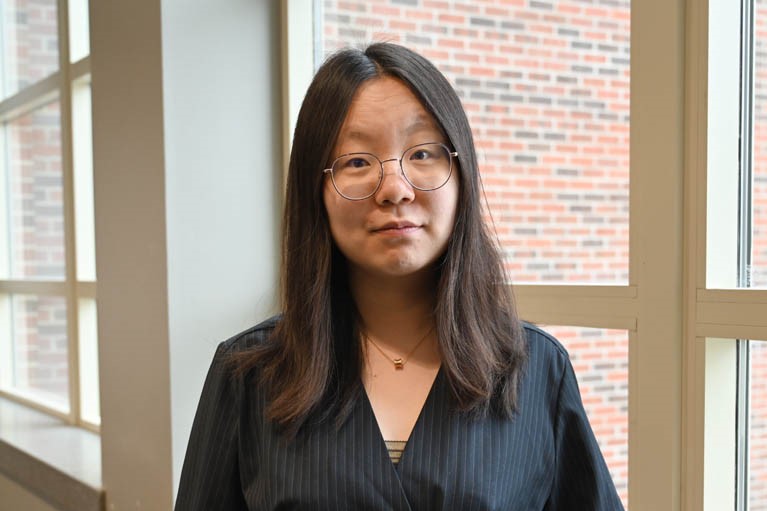September 02, 2024
Assistant Professor Mushuang Liu received Mizzou’s first Defense Advanced Research Projects Agency (DARPA) Young Faculty Award (YFA) for her research into multi-agent reinforcement learning.

Mushuang Liu, an assistant professor of mechanical engineering, has researched autonomous vehicles and systems for years. Now, she has received an award for her proposal to optimize these systems and more.
Liu was awarded a 2024 Young Faculty Award from the Defense Advanced Research Projects Agency (DARPA) for her project, “Towards adaptable and socially intelligent reinforcement learning.” This is the first time a Mizzou faculty member has received the recognition.
“The goal of the project is to develop a multi-agent reinforcement learning paradigm that is both socially intelligent and adaptable,” Liu said. “Being socially intelligent means working with and interacting with its peers, which might include team members, competitors or both, and adjusting its policies accordingly. Being adaptable means performing a broad range of tasks and quickly adapting to various environments.”
Reinforcement learning (RL) studies how agents learn to make decisions by interacting with an environment to maximize cumulative rewards. The technology has been a fundamental driver of many recent advances in artificial intelligence. However, despite their effectiveness, RL-powered autonomous systems have not yet been widely applied to real-world systems.
“Motivated by the fact that human beings can often adapt their social strategies in the face of various co-workers, customers, or competitors, we would like to explore if similar adaptable social intelligence can be created for autonomous agents,” Liu said. “To this end, we will establish a novel meta-multi-agent RL (meta-MARL) framework by fully exploiting game theory, reinforcement learning and meta-learning techniques.”
Liu is planning to verify her novel RL algorithms using autonomous driving applications.
“Fully autonomous vehicles can bring about significant societal benefits, such as reduced accident rates and improved traffic efficiency,” she said. “But major technical challenges still exist before these vehicles can routinely drive on public roads. This algorithm has the potential to address these challenges.”
The impact of Liu’s work and its potential applications are wide-ranging. Integrating interaction awareness and adaptiveness will allow agents to learn from peers who are also learning, which in turn allows technology to evolve. It’s a process that resembles how students learn through group projects, teaching each other as they understand concepts more thoroughly.
The outcome is technology that evolves similarly to human intelligence. This project would also pave the way for future research in sophisticated RL agents for broad use.
Liu says she is honored to receive this award and would like to express her gratitude to her colleagues who have been helping and supporting her.
“I am grateful for the support from DARPA and hope to establish a long-term partnership with the organization,” Liu said. “I’d like to thank Roseanna Zia, Bill Ma and Ming Xin from Mizzou for their mentorship, and Ilya Kolmanovsky from the University of Michigan for being a role model I deeply admire.”
Conduct research alongside award-winning faculty to change the world. Apply today.